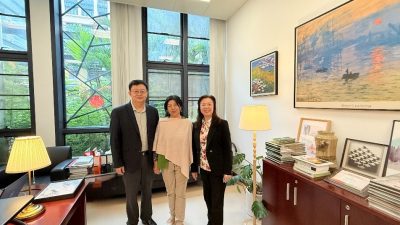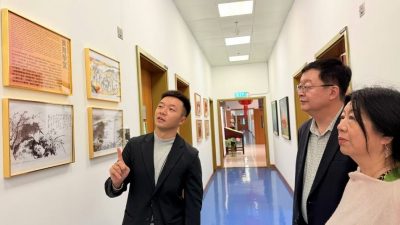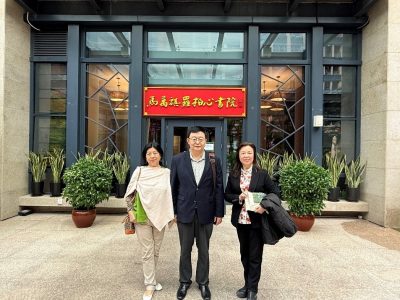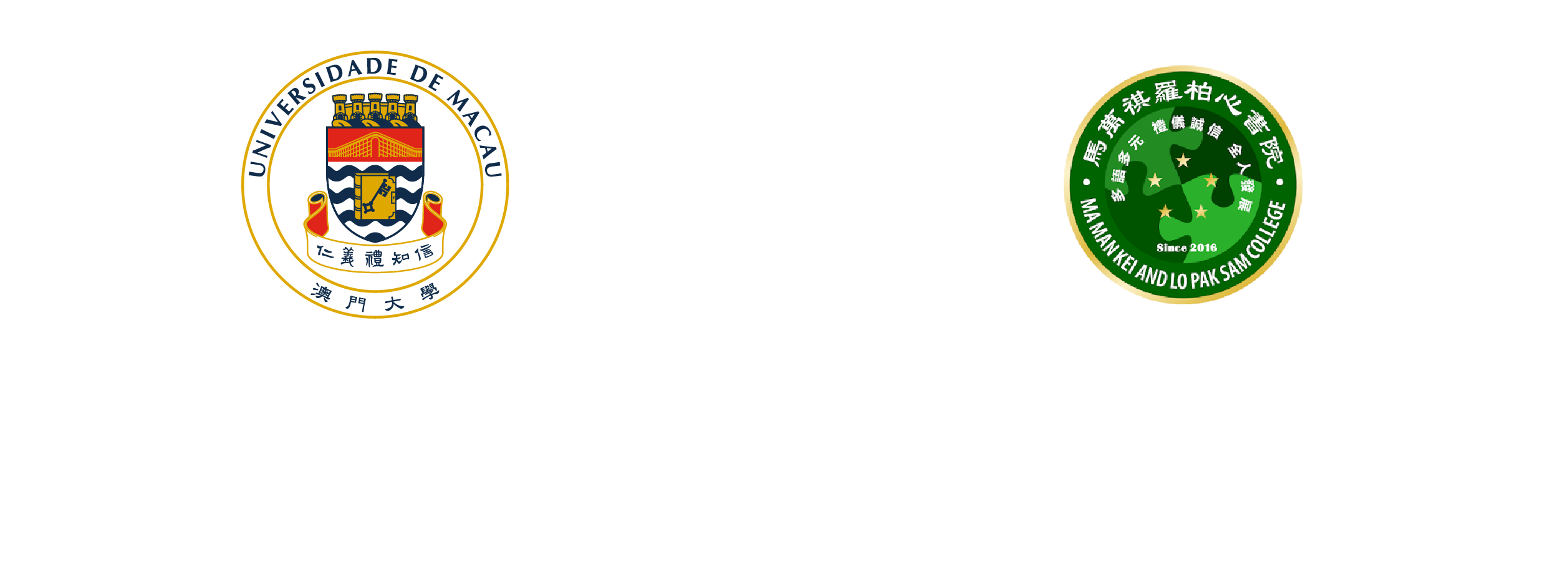In the early winter morning, the Millennium Ruby Square in the garden of Ma Man Kei and Lo Pak Sam College (MLC) shone like a dazzling pearl under the gentle sunlight. Here, the teachers and students of the college had the privilege of welcoming the renowned scholar from Cambridge University, Professor Chu Daping, who delivered a special lecture titled “Introduction of Cambridge University and Colleges.” The lecture, hosted by College Master Professor Yang Liu, attracted enthusiastic participation from members of the MLC community.
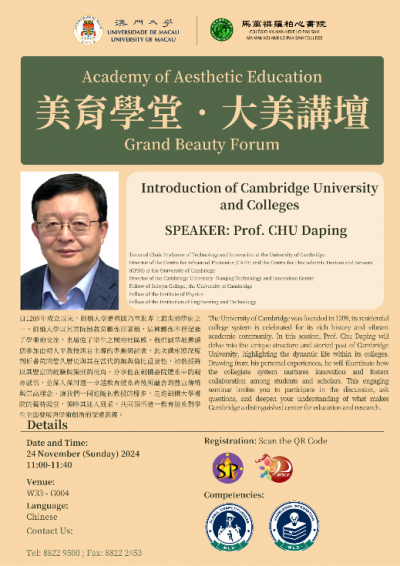
At the beginning of the lecture, Master Yang introduced Professor Chu’s outstanding academic achievements. Professor Chu is a Lifetime Chair Professor of Technology and Innovation at Cambridge University, Director of the Cambridge Centre for Advanced Photonics and Electronics, Director of the Cambridge University-Nanjing Centre of Technology and Innovation, a Fellow of Selwyn College, Cambridge, and a Fellow of both the Institute of Physics and the Institution of Engineering and Technology in the UK. Professor Chu has achieved remarkable scientific accomplishments in his field of research.

Since its founding in 1209, Cambridge University has become one of the world’s top universities, renowned for its unique collegiate system. Professor Chu took the students on a journey through time, sharing the long history and operational methods of Cambridge University and its colleges. In the educational system of Cambridge University, the university and the colleges play different roles. The university is responsible for constructing academic courses, evaluation, and awarding degrees, while the colleges are responsible for student admissions, daily life, and personal development. With his rich experience and unique perspective, Professor Chu shared his personal insights into the Cambridge collegiate system and discussed the rich traditions and philosophies behind it with the attending teachers and students.

Source: Selwyn College, University of Cambridge
Professor Chu first introduced the academic thoughts formed over 800 years of tradition at Cambridge University. These thoughts are deeply rooted in centuries of academic tradition, like ancient vines entwining the pillars of interdisciplinary collaboration. He spoke about the university’s leading position in contemporary research and its close cooperation with industry. Notably, Cambridge University collaborates with various industrial institutions and has multiple channels for knowledge transfer applications, such as the oldest English-language publisher, Cambridge University Press. These unique advantages have contributed to the brilliance of Cambridge today.
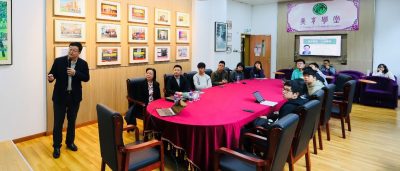
As the lecture progressed, Professor Chu detailed the Cambridge collegiate system. Cambridge University has 31 independent colleges, which form its unique educational system, complementing the six academic divisions of the university. Each college has its own autonomy, management and operational systems, unique traditions, crests, and ecological environments. The main institutions and statutes of the colleges provide a personalized and diverse learning and living environment for students: colleges offer comprehensive support, including academic guidance, life services, and recreational facilities; each student has an academic advisor and tutor responsible for their study planning and assessment; colleges encourage students to participate in various academic and social activities, such as organizing lectures, seminars, practical courses, and projects to promote academic research and knowledge integration. This collegiate system not only provides an academic and social platform for students but also promotes their overall development through personalized academic guidance and a rich campus life. This long-standing collegiate education system plays a crucial role in academic innovation and exchange, strengthening the sense of community among students and providing a solid foundation for their personal growth and comprehensive development. The features of the Cambridge collegiate system collectively form the core advantages of Cambridge University education, making it stand out in global higher education.

Source: The Guardian
In the discussion session, the attending teachers and students actively engaged, discussing topics such as Cambridge University’s student admission orientation, research paths, and operational methods, gaining a more concrete understanding of Cambridge University’s excellent academic standards and the distinctive features of its collegiate system.
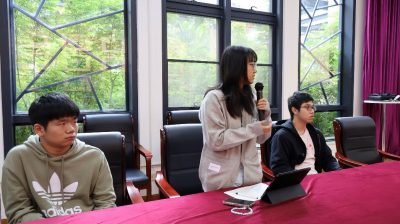
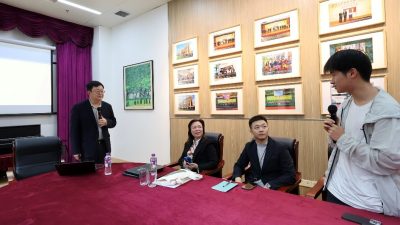
At the end of the lecture, Master Yang presented Professor Chu with a commemorative certificate of appreciation, and teachers and students took a group photo to mark the occasion.
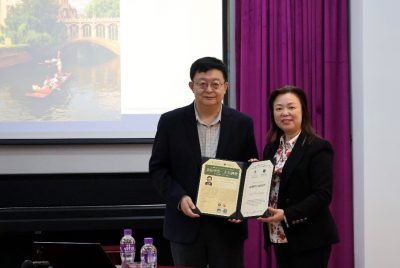
In this academic lecture, Professor Chu, with his rich experience and unique perspective, shared his personal insights into the Cambridge collegiate system, introducing the long history of Cambridge University’s collegiate education system and its important role in promoting academic innovation and exchange, enhancing the sense of community among students, and driving their comprehensive development. The Cambridge collegiate system provides valuable references for the future development of MLC, further inspiring the enthusiasm of the attending teachers and students to build the college, painting a vivid picture of the college growing together with its students.
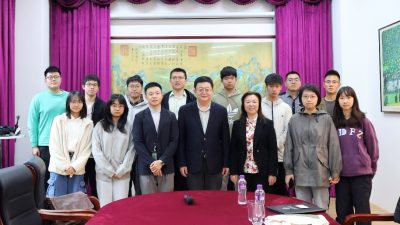
After the lecture, College Master Yang Liu invited Professor Chu to tour MLC, further discussing the college’s educational characteristics, training goals, unique features, and future prospects. Professor Chu highly praised the college’s tradition of great love, the seven competency training goals, natural and human environment, aesthetic education hall, holistic education facilities, and educational achievements, and explored the possibilities for further cooperation between the two sides.
